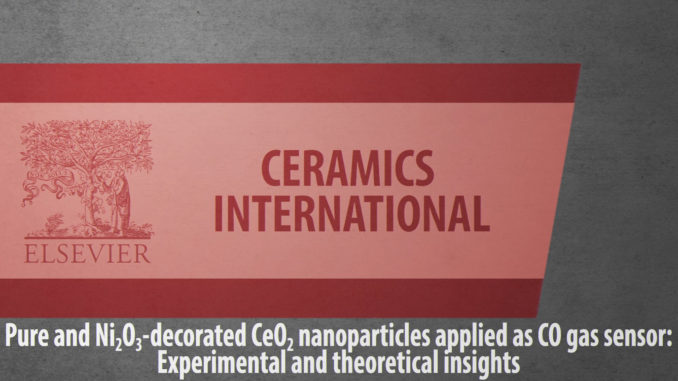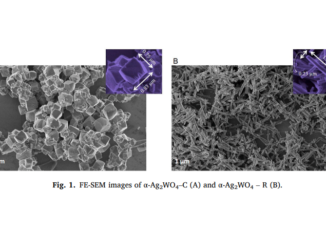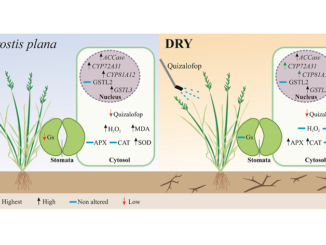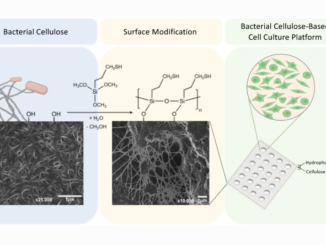
Pure and Ni2O3-decorated CeO2 nanoparticles applied as CO gas sensor: Experimental and theoretical insights
Abstract: In the present work, the structural, morphological and electrical properties of CeO2 nanoparticles with spherical and rod-like morphologies and rods decorated with Ni2O3 were investigated. Morphological, structural and electronic analyses showed a relationship between the shape/size of particles and the respective surface types, number of carriers, density of vacancies and local structural atomic order, in addition to an influence on the electrical properties of the materials. Electrical analyses revealed that the rod-like morphology has a better CO sensor response than the spherical one. In order to complement and rationalize the experimental findings, simulations at the density functional theory (DFT) were carried out to investigate the two possible mechanisms (Langmuir˗Hinshelwood and Mars-Van Krevelen) acting on the CO adsorption process and elucidate the behavior of the sensor in heterojunction-type samples.
Author(s): Amoresi, R.A.C.; Oliveira, R.C.; Cichetto Jr., L.; Desimone, P. M.; Aldao, C.M.; Ponce, M.A.; Gracia, L.; Sambrano, J.R.; Longo, E.; Andres, J.; Simões, A.Z.
Ceramics International
Available online 29 January 2022
DOI: https://doi.org/10.1016/j.ceramint.2022.01.286
CDMF
The CDMF, hosted at the Federal University of São Carlos (UFSCar), is one of the Research, Innovation and Dissemination Centers (RIDC) supported by the São Paulo State Research Support Foundation (Fapesp), and also receives investment from the National Council Scientific and Technological Development (CNPq), from the National Institute of Science and Technology of Materials in Nanotechnology (INCTMN).




